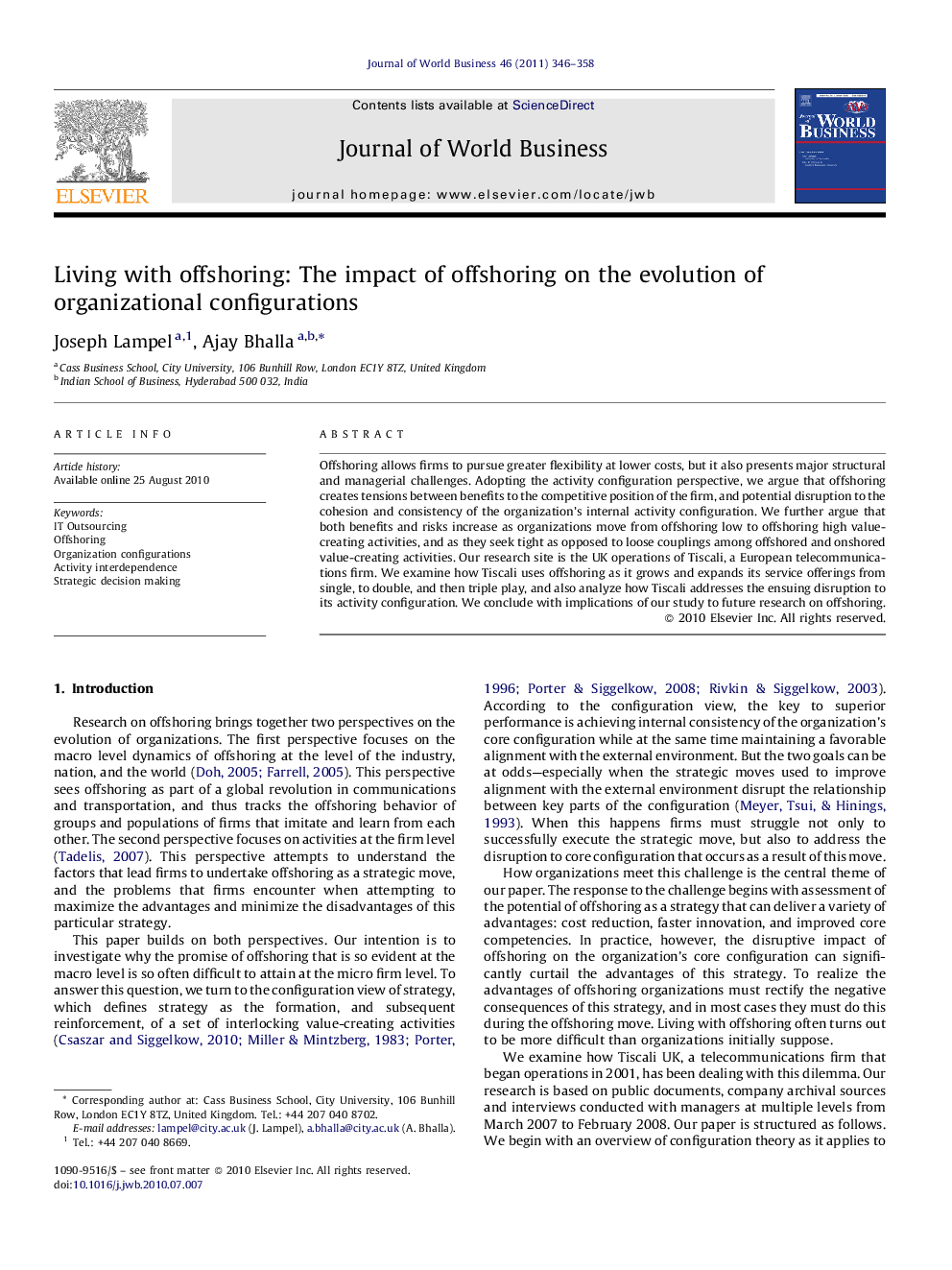| Article ID | Journal | Published Year | Pages | File Type |
|---|---|---|---|---|
| 1002232 | Journal of World Business | 2011 | 13 Pages |
Offshoring allows firms to pursue greater flexibility at lower costs, but it also presents major structural and managerial challenges. Adopting the activity configuration perspective, we argue that offshoring creates tensions between benefits to the competitive position of the firm, and potential disruption to the cohesion and consistency of the organization's internal activity configuration. We further argue that both benefits and risks increase as organizations move from offshoring low to offshoring high value-creating activities, and as they seek tight as opposed to loose couplings among offshored and onshored value-creating activities. Our research site is the UK operations of Tiscali, a European telecommunications firm. We examine how Tiscali uses offshoring as it grows and expands its service offerings from single, to double, and then triple play, and also analyze how Tiscali addresses the ensuing disruption to its activity configuration. We conclude with implications of our study to future research on offshoring.
